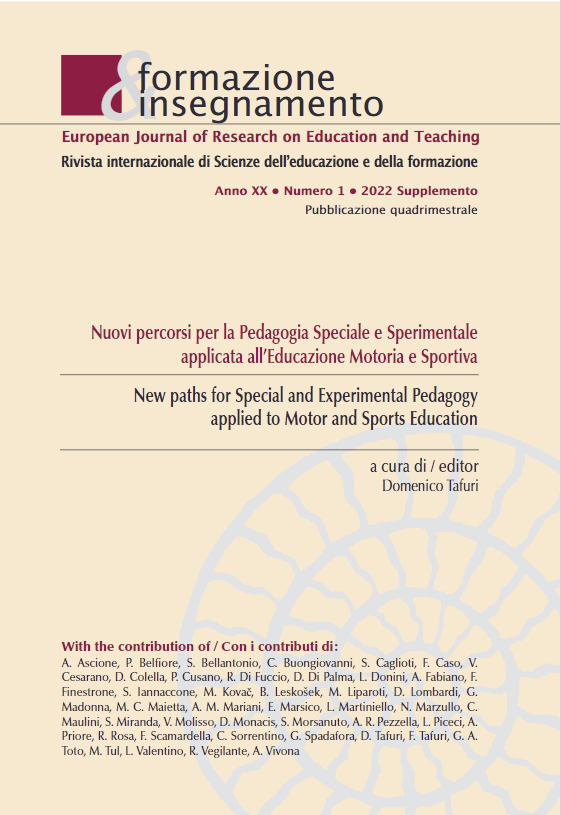Attention Deficit Hyperactivity Disorder: Physical exercise as an educational strategy useful for a better cognitive functioning
DOI:
https://doi.org/10.7346/-feis-XX-01-22_17Keywords:
ADHD, Children, Cognition, Sport, SchoolAbstract
Attention Deficit Hyperactivity Disorder (ADHD) is a developmental disorder, frequently diagnosed in childhood, characterised by a spectrum of physical, cognitive and behavioural disorders. The therapeutic strategies used to date, include the administration of psychostimulant drugs associated with psychological interventions. This multimodal approach could have negative effects for the health of children with ADHD, in the long-term. For this reason, the need to find ecological and educational approaches, in support of traditional ones, is becoming increasingly important. Recent research has introduced physical exercise as a potential symptom management treatment option for children with ADHD. The purpose of this work was to analyse recent literature, to understand the potential effects of physical exercise on cognitive functioning in children with ADHD. The analysis conducted suggests that physical exercise represents a promising additional alternative. In this study the beneficial effects induced by both acute and chronic aerobic exercises were highlighted. The study provides recommendations on the duration and type of exercise that is most effective for improving cognitive functioning in ADHD. This information could be useful for developing physical exercise programs adapted to the needs of children with ADHD.
Downloads
Published
How to Cite
Issue
Section
License
Copyright (c) 2022 Pensa MultiMedia

This work is licensed under a Creative Commons Attribution 4.0 International License.
Formazione & insegnamento is distributed under Attribution 4.0 International (CC BY 4.0).
For further details, please refer to our Repository & Archiving Policy, as well as our Copyright & Licensing Terms.





